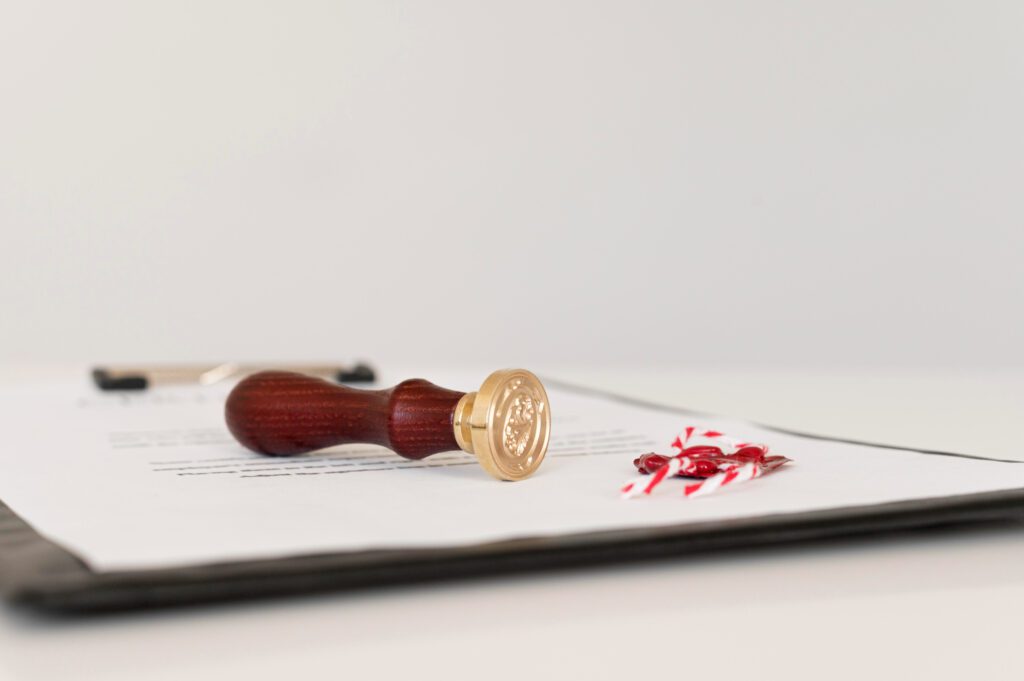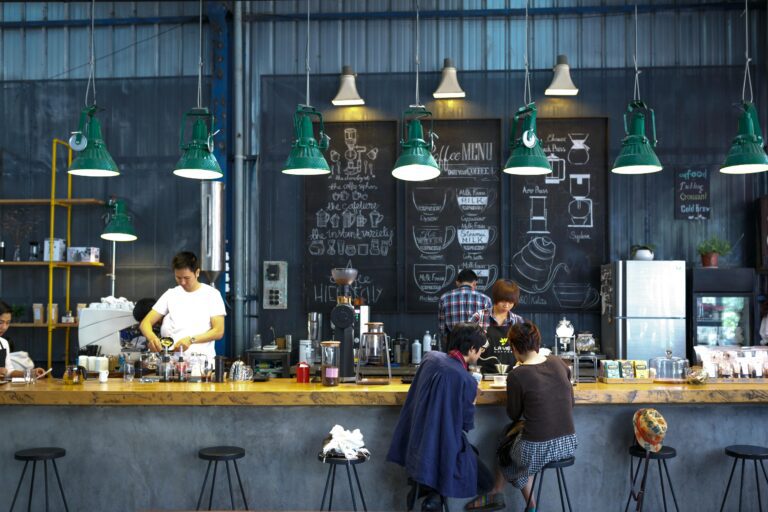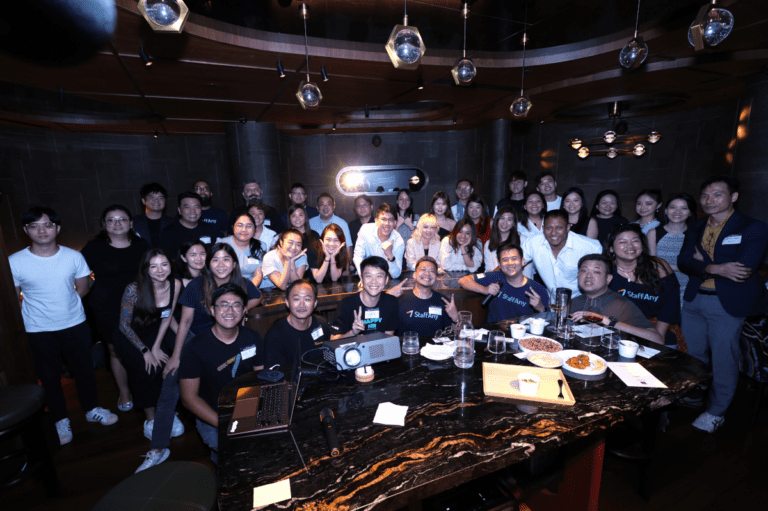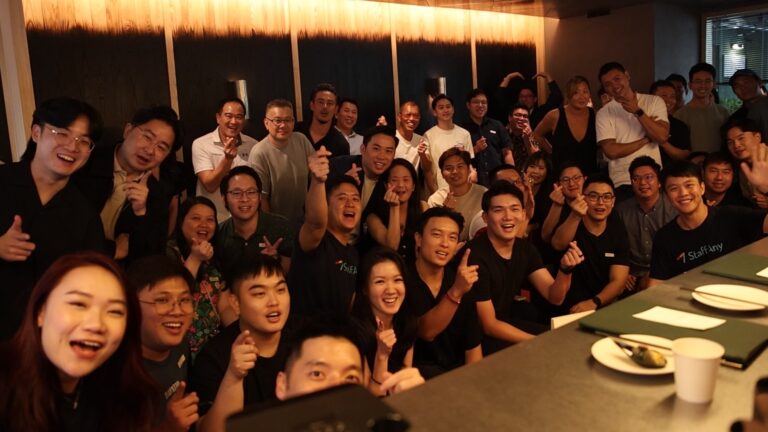Are you wondering where to register for food businesses in Singapore? Starting a food business can be an exciting and rewarding venture, but it’s important to ensure that your business is registered properly before you can start serving your delicious dishes to customers. Registering your food business is a legal requirement, and it ensures that you meet all the necessary standards and regulations to operate safely and hygienically.
In this article, we’ll discuss where to register your food business and what licences and documents you’ll need to get started in Singapore. Let’s find out below!
Where to Register Your Food Business in Singapore?
To register your food business in Singapore, you’ll need to submit your application to the Singapore Food Agency (SFA). The SFA is the national authority responsible for food safety and regulates all food-related businesses in Singapore. You can submit your application online through the SFA’s licencing portal, which is called GoBusiness Licencing.
To apply for a food business licence, you’ll need to provide information about your business, such as its name, address, and the types of food products you’ll be selling. You’ll also need to provide details about your food preparation processes, storage facilities, and equipment. The SFA will review your application and inspect your premises to ensure that you meet all the necessary requirements.
What Licences Will You Need for F&B Business in Singapore?
When starting an F&B business in Singapore, there are several licences and permits that you’ll need to obtain in order to operate legally. The licences and permits required will depend on the nature of your business and the types of food and beverages you plan to sell. Here are some of the most common licences and permits required for F&B businesses in Singapore:
1. Food Shop Licences

All food and beverage establishments in Singapore are required to obtain a food shop licence from the Singapore Food Agency (SFA) before they can operate. SFA provides licenses to food establishments from hawkers to 5-star restaurants. It created the Food Safety Management System (FSMS) to raise and maintain Singapore’s high hygiene level in the food retail and catering industry.
To obtain a food shop licence, you’ll need to submit your application to the SFA and provide all the necessary documents, such as a floor plan of your premises, a list of food handlers, and a copy of your F&B business registration with ACRA.
2. Liquor Licence
If you plan to sell alcohol in your F&B establishment, you’ll need to obtain a liquor licence from the Liquors Licencing Board. There are several types of liquor licences available, including a public house licence, a restaurant licence, and a beer house licence.
To obtain a liquor licence, you’ll need to submit your application to the Liquors Licencing Board and provide all the necessary documents, such as your ACRA business registration, floor plan, and details of your proposed operation.
3. MUIS Halal Certification Licence

If you plan to sell halal food in your F&B establishment, you’ll need to obtain a MUIS halal certification licence. This licence ensures that the food being served is halal and meets the strict guidelines set by the Islamic Religious Council of Singapore (MUIS).
To obtain a MUIS halal certification licence, you’ll need to submit your application to MUIS and provide all the necessary documents, such as your ACRA business registration, a list of your food products and ingredients, and your food preparation methods.
4. WSQ Food Hygiene Course
All food handlers in Singapore are required to complete the WSQ Food Hygiene Course before they can handle food in an F&B establishment. This course teaches food handlers the proper hygiene practices and safety standards to ensure that the food being served is safe for consumption. To obtain the WSQ Food Hygiene Course certificate, you’ll need to attend the course and pass the assessment.
5. ACRA Company Incorporation
Before you can build food retail outlets and apply for any of the licences or permits mentioned above, you’ll need to register your F&B business with the Accounting and Corporate Regulatory Authority (ACRA). This registration ensures that your business is recognised as a legal entity and is eligible to apply for the necessary licences and permits.
To register your business with ACRA, you’ll need to submit your application online and provide all the necessary documents, such as your proposed company name, business activities, and details of your shareholders and directors.

If you plan to import food products into Singapore for your F&B business, you’ll need to obtain an import licence from the Agri-Food and Veterinary Authority (AVA). This licence ensures that the food being imported meets the strict health and safety standards set by the AVA. To obtain an import licence, you’ll need to submit your application to the AVA and provide all the necessary documents, such as your ACRA business registration, a list of your food products and ingredients, and details of your import and storage procedures.
7. Public Entertainment Licence
If your F&B establishment plans to host live music or other forms of public entertainment, you’ll need to obtain a Public Entertainment Licence from the Singapore Police Force. This licence ensures that the entertainment being provided is safe and appropriate for the general public. To obtain a Public Entertainment Licence, you’ll need to submit your application to the Singapore Police Force and provide all the necessary documents, such as a floor plan of your premises, details of the entertainment you plan to provide, and your proposed operating hours.
Eligibility and Documents Needed for F&B Business Registration in Singapore

To be eligible for a food and beverage business licence in Singapore, you’ll need to meet certain criteria. Firstly, you must be a Singaporean citizen or permanent resident, or you must have a valid work permit or employment pass.
You’ll also need to ensure that your business meets all the necessary hygiene and safety standards, and that you have the necessary documents and permits in place.
Here are some of the documents that you’ll need to provide when applying for a food business licence:
1. Business Registration Documents
You’ll need to provide proof of your business registration, which includes your ACRA (Accounting and Corporate Regulatory Authority) business profile, as well as your business name and registration number.
2. Floor Plan and Layout Plan
You’ll need to provide a floor plan and layout plan of your premises, which should show the locations of your kitchen, storage areas, and other facilities. This plan will help the SFA to determine if your premises meet all the necessary hygiene and safety standards.
3. Food Hygiene Officer’s (FHO) Appointment Letter
You’ll need to appoint at least one FHO to oversee the food hygiene practices in your business. The FHO must have completed the Basic Food Hygiene Course and obtained a valid FHO certificate. You’ll need to provide the appointment letter and a copy of the FHO’s certificate when you apply for your food business licence.
4. Equipment and Kitchen Layout Plan
You’ll need to provide a detailed equipment and kitchen layout plan, which should show the locations of your equipment, sinks, and other facilities. This plan will help the SFA to determine if your kitchen meets all the necessary hygiene and safety standards.
5. Food Handlers Certificates
You’ll need to appoint at least one FHO to oversee the food hygiene practices in your business. The FHO must have completed the Basic Food Hygiene Course and obtained a valid FHO certificate. You’ll need to provide the appointment letter and a copy of the FHO’s certificate when you apply for your food business licence.
4. Equipment and Kitchen Layout Plan
You’ll need to provide a detailed equipment and kitchen layout plan, which should show the locations of your equipment, sinks, and other facilities. This plan will help the SFA to determine if your kitchen meets all the necessary hygiene and safety standards.
5. Food Handlers Certificates

All food handlers working in your business must have completed the Basic Food Hygiene Course and obtained a valid food handler’s certificate. You’ll need to provide a copy of each employee’s certificate when you apply for your food business licence.
6. Other Permits and Certificates
Depending on the type of food products you’ll be selling, you may need to obtain additional permits and certificates. For example, if you plan to sell alcohol, you’ll need to obtain a liquor licence. If you plan to import or export food products, you’ll need to obtain an import or export licence.
Starting a food business in Singapore can be a rewarding venture, but it’s important to ensure that your business is registered properly before you start serving your customers.
To register your food business, you’ll need to submit your application to the Singapore Food Agency (SFA) and provide all the necessary documents and permits.
By following the guidelines and regulations set by the SFA, you’ll be able to operate your food business safely and hygienically and provide your customers with delicious and healthy food options.
Pro Tips for Starting a Restaurant Business in Singapore
Running a new restaurant business can be challenging, but there are several tips that can help you succeed. Here are some tips for running a new restaurant business:
1. Prioritise Customer Service
Customer service is essential to the success of any restaurant. You need to prioritise providing excellent customer service at all times. This includes greeting customers warmly, being attentive to their needs, and responding quickly to any issues or concerns.
2. Maintain Consistency
Consistency is key in the restaurant industry. Customers expect the same quality of food, service, and atmosphere every time they visit. It is essential to train your staff to deliver a consistent experience and to maintain consistency in your menu offerings and overall brand.
3. Adapt to Customer Feedback
Customer feedback is a valuable tool for improving your restaurant. You need to listen to your customers’ feedback, both positive and negative, and make adjustments accordingly. This may include menu changes, service improvements, or updates to your restaurant’s design.
4. Manage Inventory and Costs
Effective inventory management is crucial to the financial success of your restaurant. You need to monitor inventory levels and costs regularly and make adjustments as needed. This includes reducing waste, negotiating with suppliers, and finding ways to increase efficiency in the kitchen.
5. Stay Up-to-Date on Industry Trends
The restaurant industry is constantly evolving, and it is essential to stay up-to-date on the latest trends and innovations. This includes staying informed about new technologies, menu trends, and consumer preferences. You may also want to attend industry events and conferences to network with other restaurant owners and industry professionals.
6. Build a Strong Online Presence
In today’s digital age, having a strong online presence is essential for any restaurant business. You need to create a website that showcases your menu, location, and hours of operation. You should also create social media accounts and use them to engage with customers, share promotions, and highlight your restaurant’s unique features.
7. Foster a Positive Work Culture
Creating a positive work culture is crucial to the success of your restaurant. You need to create a work environment that values teamwork, communication, and respect. This includes providing opportunities for professional development, offering competitive pay and benefits, and recognizing and rewarding hard work.
Read more: How to Calculate Food Cost Percentage
Streamline Your F&B Business Operations with StaffAny
Now that you know where to register your food business in Singapore and what licences you’ll need, it’s time to start building your team. Hiring and managing staff can be a daunting task, but with StaffAny’s connected workforce solution, you can simplify your scheduling and payroll processes.
StaffAny is an employee scheduling and time-tracking software that helps F&B businesses streamline their operations and improve their bottom line. With our easy-to-use platform, you can create schedules, manage time off requests, and track employee hours all in one place. Plus, with our built-in payroll integration, you can automate your payroll process and save time on administrative tasks.
If you’re looking for a way to optimise your F&B business operations, StaffAny’s connected workforce solution can help. Contact us today to learn more about our platform and how we can help you build a successful food business in Singapore!













